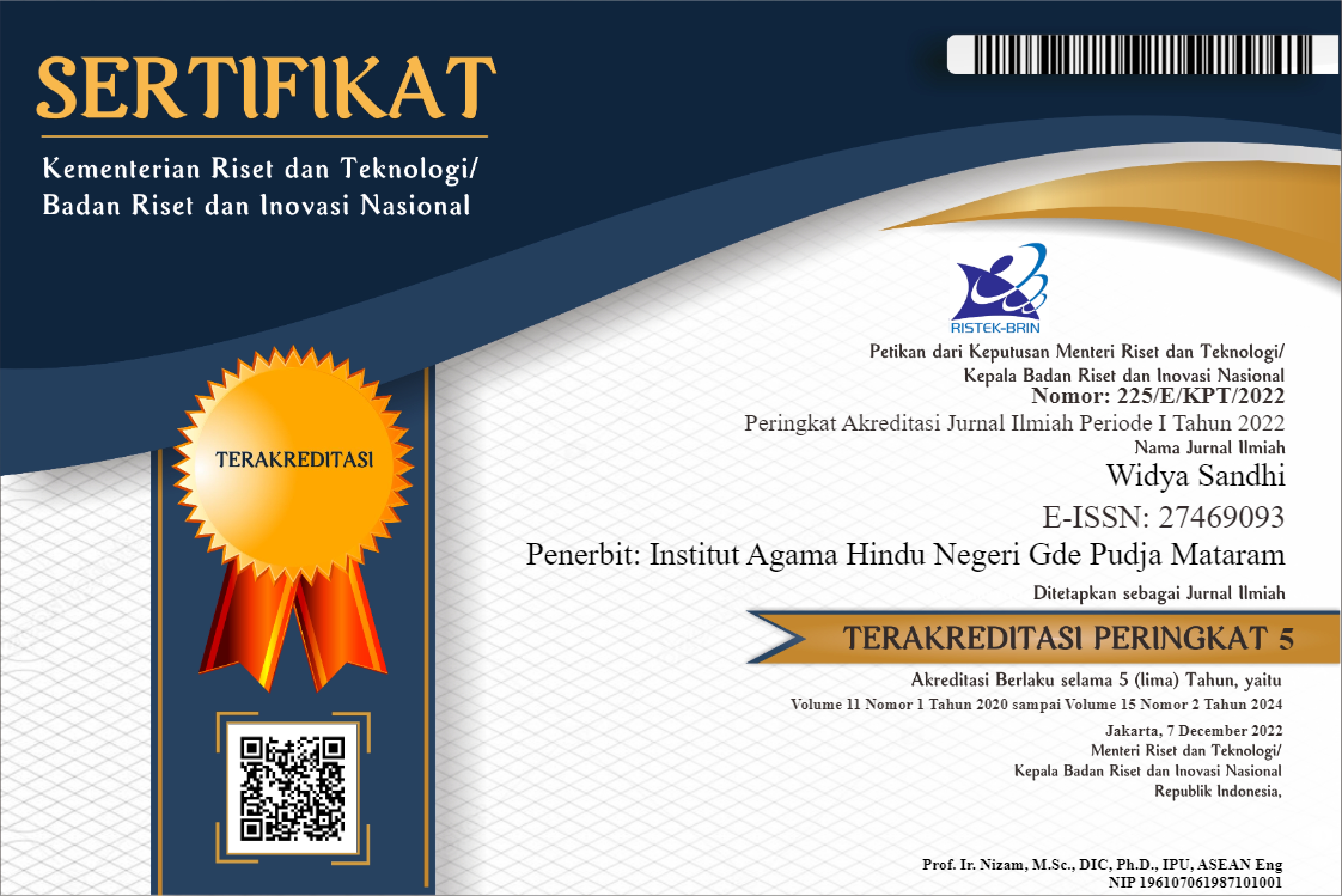STRATEGI JARINGAN PENGGIAT LITERASI DIGITAL DALAM KAMPANYE MELAWAN HOAKS PANDEMI COVID-19
Abstract
The Ministry of Communication and Information (Kominfo) recorded and labeled 1,733 hoaxes related to Covid-19 and vaccines until May 2021. Mainstream media have not shown satisfactory results in educating the public in Indonesia in the midst of the infodemic. The Digital Literacy Activist Network (Japelidi) is one of the communities in Indonesia that has a great concentration on digital literacy. This community has a movement to educate the public who experience digital stuttering in the midst of the information wave of the Covid-19 pandemic. This article aims to explore the strategies used by Japelidi in mobilizing volunteers from various academics, communities to collaborations carried out during the Pandemic. The method used in. This study uses an analysis of the Culture Participatory Theory, which was initiated by Henry Jenkins. The findings are that Japelidi uses three clusters as a strategy in literacy development. This strategy consists of 3 circular clusters, namely the main cluster in the form of a single narrative, the meso cluster containing the description of the Single Narrative, and the outermost stakeholder cluster. While the digital literacy campaign strategies carried out are agenda setting, key message delivery, media distribution and target reach.
References
Arif, Ahmad. 2020, 14 Agustus. Kompas.id Informasi Keliru tentang Covid-19 Mematikan.https://kompas.id/baca/humaniora/ilmu-pengetahuanteknologi/2020/08/14/informasi-keliru-tentang-covid-19-mematikan/ (online) Diakses pada 30 Agustus 2021
Jumrana. (2021). Pemberdayaan Literasi Digital dalam Membangun Sistem Antihoaks (135-137. Kolaborasi, riset, dan volunterisme Membangun Resiliensi dalam Gejolak Pandemi. Jakarta Selatan: Mafindo
Kurnia, N., Nurhajati, L., Astuti, S, I. (2020). Kolaborasi lawan (Hoaks) Covid-19: Kampanye, Riset dan Pengalaman Japelidi di Tengah Pandemi dalam Kurnia, N. , Wijayanto, X.A. Kolaborasi sebagai Kunci: Membumikan Kompetensi Literasi Digital Japelidi. Yogyakarta: Gadjah mada University Press.
Kurnia, N., Nurhajati, L., Astuti, S, I. (2020). Kolaborasi lawan (Hoaks) Covid-19: Kampanye, Riset dan Pengalaman Japelidi di Tengah Pandemi dalam Astuti, S.I., Wiratmo, L.B., Kusumo, Y. W., Strategi Kampanye Japelidi: Bertumbuh dan Berkembang dalam Spirit ‘Crowd’ Yogyakarta: Gadjah mada University Press.
Perangin-angin, L.L.K., (2021) Infodemi di Ruang Komunitas Virtual: Aktualisasi Diri vs Akurasi (48-49). Kolaborasi, riset, dan volunterisme Membangun Resiliensi dalam Gejolak Pandemi. Jakarta Selatan: Mafindo
Wardani, P.K. (2018). Budaya Partisipasi (Participatory Culture) di Kalangan Vlogger. Skripsi , Universitas Airlangga.
Zarocostas, J. (2020). How to fight an infodemic. The Lancet, 395(10225), 676.
doi:10.1016/S0140-6736(20)30461-X

This work is licensed under a Creative Commons Attribution-NonCommercial-ShareAlike 4.0 International License.
Authors who publish with this journal agree to the following terms:
- Authors retain copyright and grant the journal right of first publication with the work simultaneously licensed under a Creative Commons Attribution-ShareAlike 4.0 International License. that allows others to share the work with an acknowledgment of the work's authorship and initial publication in this journal.
- Authors are able to enter into separate, additional contractual arrangements for the non-exclusive distribution of the journal's published version of the work (e.g., post it to an institutional repository or publish it in a book), with an acknowledgment of its initial publication in this journal.
- Authors are permitted and encouraged to post their work online (e.g., in institutional repositories or on their website) prior to and during the submission process, as it can lead to productive exchanges, as well as earlier and greater citation of published work (See The Effect of Open Access).






.jpg)




